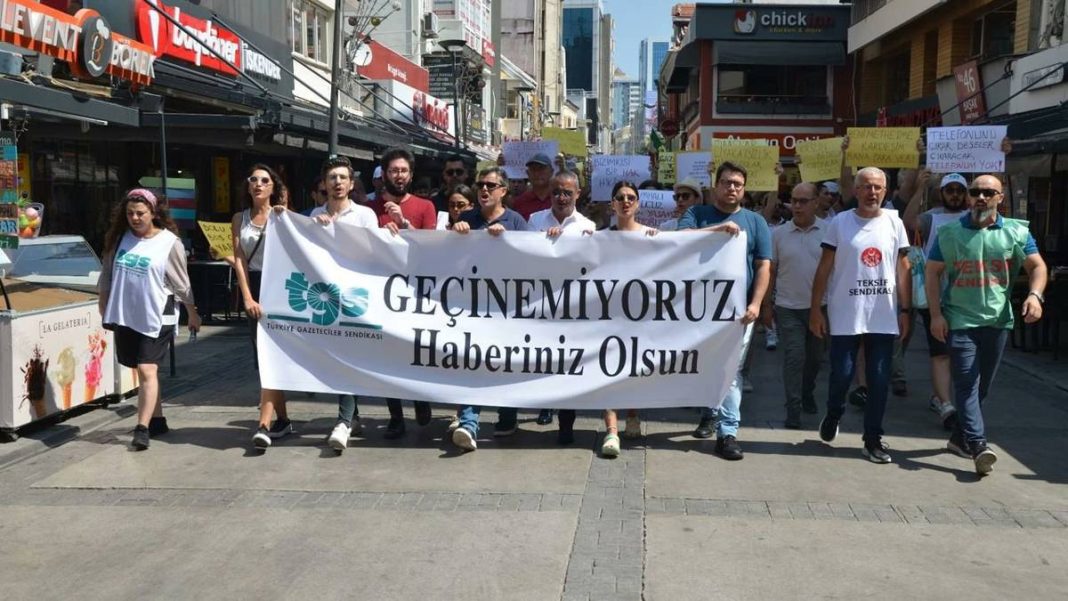Journalists in İzmir, western Turkey, organized a protest today, led by the Journalists’ Union of Turkey (TGS), to spotlight the economic difficulties faced by media workers.
The demonstrators marched through the Alsancak district, holding banners with messages such as “We can’t make ends meet, let it be known” and “Let the bosses pay for the crisis.” They chanted slogans like “News cannot be made with an empty wallet,” addressing media owners directly.
At the end of the march, Nil Kahramanoğlu, chair of the TGS İzmir branch, delivered a statement underscoring the severe economic crisis in Turkey and its impact on journalists. She highlighted the significant poverty experienced by media workers amid worsening economic conditions.
“Journalists are living at the starvation line,” Kahramanoğlu said, referring to union reports. This line, at 18,978 liras—covering monthly food expenses for a family of four—exceeds the minimum wage of 17,000 liras (1 US dollar = 32.94 Turkish liras).
“We are struggling to survive on salaries that were increased to the minimum wage at the start of the year,” the unionist explained. “The meal allowances we receive are insufficient to cover even ten days of food. Despite this grim situation, we continue to uphold our professional principles.”
Kahramanoğlu further criticized government policies, stating, “Turkey is facing a severe economic crisis. While the government refuses to acknowledge this, significant impoverishment has occurred, especially over the past two years, impacting journalists as well.
“Our average wages have dropped to or below the starvation line. We are trying to make ends meet on salaries set at the minimum wage level earlier this year. With our meal allowances, we can’t even afford ten days’ worth of food. Despite this harsh reality, we strive to uphold the values of our profession.”
Salaries Below the Poverty Line: Journalists in non-union workplaces face particularly low wages, with only 4.2% earning above the poverty line compared to 25.4% of their counterparts in unionized settings.
Lack of Additional Income: Most journalists do not have any supplementary income beyond their primary wages.
Dependence on Family Support: Nearly half of the journalists working in non-union environments depend on financial assistance from their families to make ends meet.
Difficulty Covering Monthly Expenses: Over half of journalists in non-union workplaces struggle to manage their monthly expenses with their current income.
Need for Higher Income: More than a quarter of survey participants believe they need at least 30,000 liras per month to cover their basic needs.
Readiness to Take Extra Jobs: Although three-quarters of the participants are not currently working additional jobs, they are open to doing so if the opportunity arises.
Major Expenses: A significant portion of their income is allocated to housing/rent, transportation, and food.
Perception of Poverty: Many participants view themselves as poor, with the majority considering themselves to be in a low-income bracket.
Inability to Buy Property: Respondents feel that purchasing a new or used house or car is unattainable in the foreseeable future.
Living Arrangements: Half of the participants live in rented accommodations, and most report that they are not the sole earners in their households.




